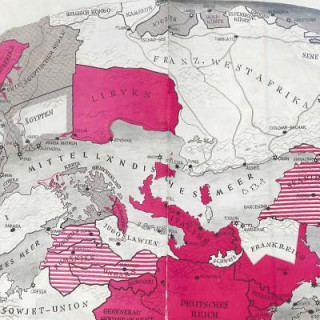
Kód: 02866353
New Europe 1933-1945
Autor Carl Wege
The term Europe has not always been under-stood in the same way. Depending on the period and influenced by the dominant interpreting elites at the time, it was always different features that were emphasised, "new" traditions that ... celý popis
- Jazyk:
 Angličtina
Angličtina - Väzba: Pevná
- Počet strán: 112
Nakladateľ: Edition Axel Menges, 2016
- Viac informácií o knihe

39.61 €
Bežne: 41.65 €
Ušetríte 2.04 €

Skladom u dodávateľa v malom množstve
Odosielame za 3 - 5 dní
Potrebujete viac kusov?Ak máte záujem o viac kusov, preverte, prosím, najprv dostupnosť titulu na našej zákazníckej podpore.
Pridať medzi želanie
Mohlo by sa vám tiež páčiť
-
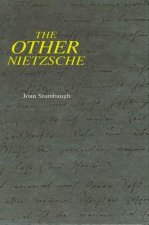
Other Nietzsche
44.74 € -

Christmas Carrolls
10.05 € -12 % -

Six of Crows Boxed Set
21.01 € -15 % -

Quintessential Quintuplets 3
12.06 € -22 % -
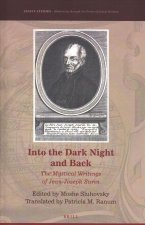
Into the Dark Night and Back: The Mystical Writings of Jean-Joseph Surin
321.47 € -

Creative Bass Technique Exercises
24.12 € -

Container Security
53.59 € -4 % -

Marcel Duchamp
123.17 € -

Music Theory
19.40 € -

Floriography
16.28 € -23 % -
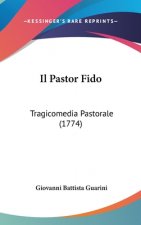
Il Pastor Fido: Tragicomedia Pastorale (1774)
55.59 € -

Graphene and other Two-dimensional Materials in Nanoelectronics and Optoelectronics
47.12 € -

Haikyu!!, Vol. 42
10.05 € -13 % -

The Midnight Library
10.25 € -19 % -

Cyberpunk 2077: Your Voice
18.89 € -9 % -

Art Of Doom: Eternal
32.87 € -18 % -
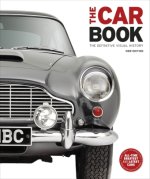
Car Book
26.64 € -14 % -

The Wisdom of Crowds
11.25 € -18 % -

Cold Enough for Snow
12.06 € -9 % -

Kamen Rider - The Classic Manga Collection
28.55 € -14 % -
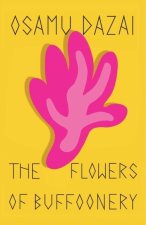
Flowers of Buffoonery
14.17 € -11 % -

Tombs: Junji Ito Story Collection
21.41 € -17 % -

You Don't Have a Shot
20.91 € -

My Happy Marriage 03
12.46 € -12 % -

How to Be the Love You Seek
32.47 € -

Heaven Official's Blessing: Tian Guan Ci Fu (Novel) Vol. 8 (Special Edition)
31.16 € -
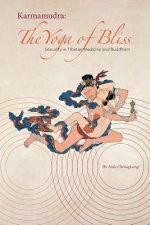
Karmamudra
36.69 € -
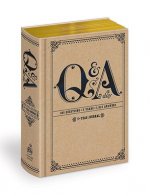
Q&A a Day
13.26 € -18 % -

Baby Owner's Manual
17.49 € -3 % -

Twenty-Fourth Report of the Railroad Commission of Georgia - Scholar's Choice Edition
26.09 € -

Adventurous Couple's Guide to Strap-on Sex
20.81 € -

Camel
18.39 € -13 % -

Stimmt! 2 Pupil Book
33.37 € -

Total Money Makeover: Classic Edition
21.41 € -20 % -

The Africa Cookbook
20.91 € -
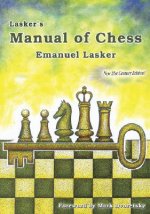
Lasker's Manual of Chess
26.03 € -14 % -

Five Families
26.74 € -3 % -

Jack Reacher & Jack Reacher - Kein Weg zurück
25.53 € -

It Devours!
21.71 € -6 % -

Building Smart Drones with ESP8266 and Arduino
38.80 € -

Taken by the Hitman
15.37 € -
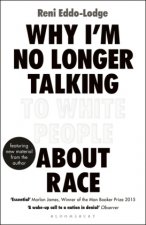
Why I'm No Longer Talking to White People About Race
12.06 € -22 % -
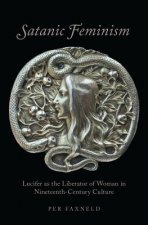
Satanic Feminism
69.47 € -
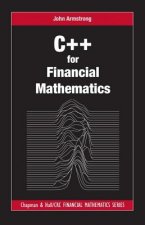
C++ for Financial Mathematics
135.94 € -
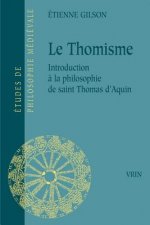
Le Thomisme: Introduction a la Philosophie de Saint Thomas D'Aquin
51.07 € -

Samotny mężczyzna
7.53 € -26 % -
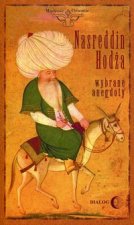
Nasreddin Hodza. Wybrane anegdoty
10.25 € -18 % -

Farmakologia po prostu
8.74 € -12 % -

Panzerketten
20.81 € -5 %
Darujte túto knihu ešte dnes
- Objednajte knihu a vyberte Zaslať ako darček.
- Obratom obdržíte darovací poukaz na knihu, ktorý môžete ihneď odovzdať obdarovanému.
- Knihu zašleme na adresu obdarovaného, o nič sa nestaráte.
Viac informácií o knihe New Europe 1933-1945
Nákupom získate 100 bodov
 Anotácia knihy
Anotácia knihy
The term Europe has not always been under-stood in the same way. Depending on the period and influenced by the dominant interpreting elites at the time, it was always different features that were emphasised, "new" traditions that were§discovered and "created", and different values - specific to the period - that were claimed as European. Europe is a construct. That is as true today as in the period before 1945.§This monograph focuses on "Sachbücher" (nonfiction books), travelogues and literary-political writings by eight authors who played a key role in the discourse on Europe in the Third Reich and also partly in the early German Federal Re-public. One of them is Walter Kiaulehn. In World War II, in the periodical Signal, Kiaulehn draws up a European "family tree" of a somewhat different, totalitarian kind - naturally excluding semi-Asiatic Russia as well as England, "a refugee from Eu-rope". England has "swum off" in the direction of the USA. For Ernst Wilhelm Eschmann, Great§Britain and France belong to the "margins of Eu-rope" anyway, while the central powers, Germany and Italy, constitute the actual core of the continent. Europe evolves from the centre, and it is characteristically medial, balanced, mediating between tradition and progress. It is the others who are radical and have no appreciation for the middle course: the Americans with their skyscraper fantasies and the Bolsheviks with their anti-cultural tabula-rasa mentality. "The New Europe", on the other hand, is the continent where in accordance with a golden mean that has developed historically, a moderate Modernism takes shape. An instance of this is the "New Bari", the "favor-ite city of Fascism" that Gustav R. Hocke visits§in 1937 and in which, instead of giant high-rises, he encounters much smaller, six-storey buildings along the new waterfront promenade.§The term "The New Europe" became generally accepted in Germany during the 1930s, and by the beginning of World War II it was an integral part of the German discourse on Europe.§Carl Wege teaches at the University of Biele-feld. His research focuses on the interface of lit-erary studies, historiography and journalism. His most recent book is Buchstabe und Maschine. Beschreibung einer Allianz, published by Suhr-kamp Verlag. At present he is working on a new research project, titled "The construction of a community of values and of a shared destiny. The discourse on Finland in Germany from 1933 to 1945".
 Parametre knihy
Parametre knihy
Zaradenie knihy Knihy po anglicky Humanities History Regional & national history
39.61 €
- Celý názov: New Europe 1933-1945
- Podnázov: German Thought Patterns About Europe
- Autor: Carl Wege
- Jazyk:
 Angličtina
Angličtina - Väzba: Pevná
- Počet strán: 112
- EAN: 9783936681963
- ISBN: 3936681961
- ID: 02866353
- Nakladateľ: Edition Axel Menges
- Hmotnosť: 728 g
- Rozmery: 248 × 211 × 15 mm
- Dátum vydania: 10. August 2016
Obľúbené z iného súdka
-

Hundred Years' War on Palestine
12.56 € -20 % -

Ethnic Cleansing of Palestine
13.36 € -19 % -

History of Japan
16.88 € -15 % -

Ten Myths About Israel
12.16 € -14 % -

Strange Death of Europe
15.27 € -20 % -

Decline and Fall of the Roman Empire
6.02 € -23 % -

Secret History
12.06 € -23 % -

God's Playground A History of Poland
67.56 € -

Mayflower
16.88 € -15 % -

How to be a Victorian
13.77 € -12 % -

Plantagenets
14.17 € -23 % -

General's Son
20.40 € -2 % -

Iran: A Very Short Introduction
11.96 € -15 % -

Temples of Karnak
150.93 € -

Cuneiform
10.95 € -23 % -

Twenty Years A-Growing
9.95 € -22 % -

China in Africa
37.30 € -

Bohemian Paris
16.88 € -15 % -

History of Witchcraft in England from 1558 to 1718
19 € -

Islandman
10.95 € -20 % -

Lancaster And York
22.72 € -

Alexiad
18.59 € -14 % -

Modern France: A Very Short Introduction
11.96 € -15 % -

Inside Hitler's Greece
20.60 € -19 % -

Diana: Her True Story - In Her Own Words
11.45 € -19 % -

The Fourth Turning
19.50 € -7 % -

The Oxford History of Ancient Egypt
15.27 € -23 % -

Churchill: The Power of Words
15.27 € -20 % -

Palestine
20.20 € -18 % -

Korean History in Maps
27.84 € -14 % -

Great Gatsby (Wisehouse Classics Edition)
16.08 € -36 % -

Viking Way
45.44 € -7 % -

The Thirteenth Tribe
12.56 € -

My Promised Land
18.39 € -

Vanished Kingdoms
19.10 € -20 % -

Age Of Revolution
16.28 € -23 % -

Life and Death of Anne Boleyn
23.22 € -3 % -

Coming of the Third Reich
18.39 € -23 % -

Children of Ash and Elm
17.18 € -20 % -

Europe Between the Oceans
34.08 € -5 % -

Socialism Betrayed
20.20 € -14 % -

303 Squadron
18.39 € -23 % -

Ancient Celts, Second Edition
27.64 € -15 % -

Dancing in the Glory of Monsters
16.88 € -15 % -

Battle of Britain: Luftwaffe Blitz (Images of War)
25.43 € -1 % -

Age of Confucian Rule
35.39 € -

Beyond Band of Brothers
16.28 € -23 % -

Benjamin Franklin
18.69 € -11 % -

On China
17.18 € -20 %
Osobný odber Bratislava a 2642 dalších
Copyright ©2008-24 najlacnejsie-knihy.sk Všetky práva vyhradenéSúkromieCookies


 21 miliónov titulov
21 miliónov titulov Vrátenie do mesiaca
Vrátenie do mesiaca 02/210 210 99 (8-15.30h)
02/210 210 99 (8-15.30h)